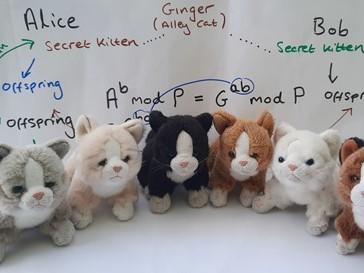When I was a kid, I read all the time and still do. Reading is the first hobby I recall from my childhood. The connection between that and my work as a scholar is obvious, but until I began writing this article, I rarely stopped to consider the myriad ways in which my other hobbies – from playing mandolin to wrestling to woodwork – have also impacted my scholarship.
I have a lot of hobbies. I seem to collect them the way some people collect stamps or Pokémon.
- Walk the walk to benefit your academic research
- Five strategies to generate a sense of satisfaction in your academic work
- What Wordle teaches us about the power of success
Surely, everything we do, and many things we don’t, shape us as people. Yet I seldom stop to reflect on what is shaping me and how. Socrates said that the unexamined life is not worth living. That seems a bit harsh, but I do think it’s a good aspiration. I’m happy to take the opportunity to examine one facet of my life – my scholarship – through the lens of my hobbies. Or perhaps what I’m doing is the opposite of that: examining my hobbies through the lens of scholarship.
Notes on mastering music
I’ve been engaged in music since I was a child. I sang in choirs in high school and college and have played guitar for nearly 40 years. Over the course of the pandemic, I learned to play mandolin, while also honing my skills with the banjo and bass. Thinking musically provides me with a different way of looking at a problem – a unique way of knowing. Adopting different epistemologies allows for more creativity in research. Having multiple frameworks for thinking about a problem provides for a broader set of solutions.
Music also teaches me patience. I’ve learned to be willing to be bad at something long enough to become good at it. When I take up a new instrument, it can at first seem difficult or frustrating. But after a few years of trying, I often notice that eventually, somewhere along the way, I have learned to play the instrument that used to frustrate me.
In a similar way, good scholarship takes time and requires faith that you are making progress even if it doesn’t always feel that way.
Sports: from fundamentals to strategy
I study learning and instruction and have interest in learning in the psychomotor domain, which is how we learn physical skills. It’s often neglected in academic literature in favour of the cognitive domain, which is how we learn mental skills and comprises most of what we do in school.
I’ve always enjoyed sports. I wrestled in high school and college and practised martial arts for decades. These days I mostly play tennis.
When I learn a sport, I pay attention to how I’m learning the motions and how I’m being taught. By doing this, I gain insight into a branch of my field of study. More generally, though, sport helps me see the benefits of getting the fundamentals down. When I first learn a sport, the focus is on being able to complete certain movements correctly and automatically. Once I’ve mastered the basic movements, my focus shifts to strategy and tactics.
Now when I play tennis, I’m more concerned with the mental aspects than the physical. There’s a strong parallel to research. You need to have basic research skills developed to the point of automaticity, so you can focus on the more creative aspects of your studies.
Woodworking as research workshop
I have a woodshop in my basement; I suppose you could call it more of a makerspace. There are dozens, if not hundreds, of tools and techniques that can be combined in a wide variety of ways to accomplish a task.
Recently, I bought a new sander and discovered that the design had gone from five holes in the sanding pad to eight. This is an improvement because it allows for better dust collection. However, I own piles of five-hole sanding paper. So, I had to figure out how to convert my old sandpaper to a new design. I ended up building a kind of punch machine that would put the new hole pattern in the old paper. This type of creative problem-solving happens all the time in woodworking, just as it happens in research and scholarship.
The more ways you can think of to approach a problem, the better. The more familiar you are with the tools and techniques of research, the more creative you can be in your research design. As I’ve improved my woodworking over the years, I’ve also learned to value precision. Where I might have initially been OK with being a quarter inch off in my design, I’m now unhappy if I’m even a few thousandths of an inch off. Projects look better and work better when everything fits. And it’s amazing how many ways there are to get things wrong!
The same applies to scholarship. It’s important to be precise, and it’s helpful to understand the factors that can lead to imprecise research. For example, a poorly worded question in a survey can lead to results that are ambiguous or misleading. You could spend a lot of time analysing those results only to find that you weren’t measuring what you thought you were measuring.
What I learn from learning
I suppose my true hobby, if I had to narrow it down to just one, is learning. I love to learn. And I’m not picky about what. I’m naturally curious, but I’m not certain that this curiosity is simply innate to my personality. Learning begets learning. The more I know, the more I want to know. It’s kind of the opposite of the Dunning-Kruger effect, which is well documented in psychology literature and basically says the less you know, the more you think you know.
I also love making or seeing the connections between unrelated things (for example, how my hobbies influence my scholarship). I’m a firm believer that there is always a lesson to be learned, from any person or any event. The trick is realising this and seeking out that lesson.
Stephen W. Harmon is interim executive director of the Georgia Institute of Technology’s Center for 21st Century Universities, an associate dean of research in Georgia Tech Professional Education, and a professor in the College of Design.
If you found this interesting and want advice and insight from academics and university staff delivered direct to your inbox each week, sign up for the THE Campus newsletter.




comment